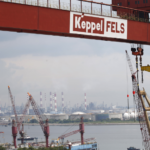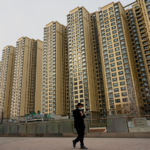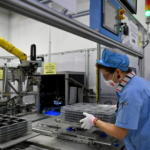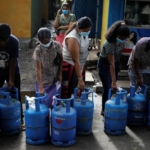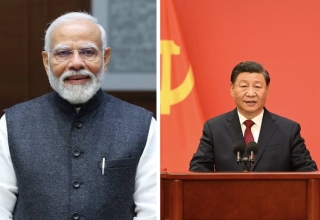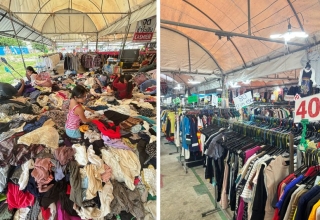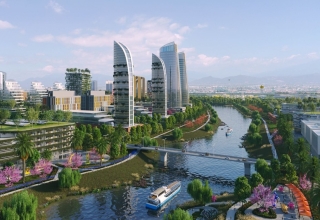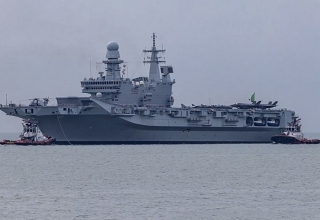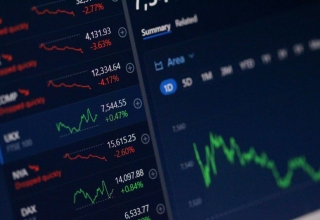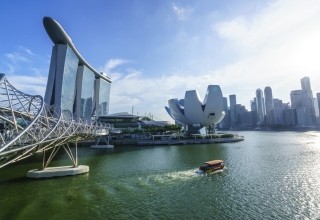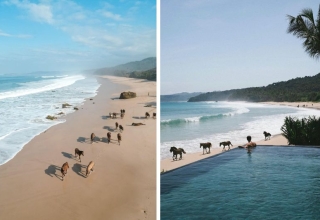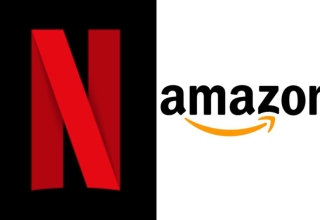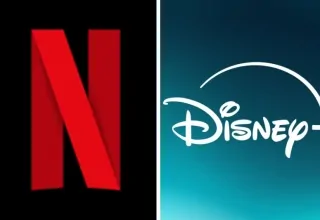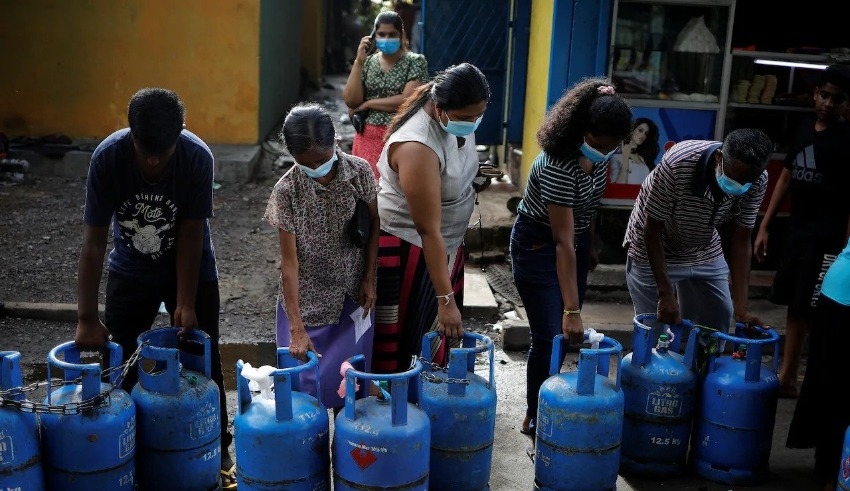
Although Akshant appears to be no different than any other tuk tuk driver in Sri Lanka, his earnings are three times more than those of his peers.
This is due to the fact that he has been selling fuel on the illicit market despite their now being a major scarcity.
The man, who was 59 years old, made the statement while sitting behind the wheel of his red truck. “It is more profitable than operating a tuk tuk,” he remarked.
The three-wheeled open vehicle was parked in a calm neighborhood of Colombo, which is often where lines outside of gas stations run for a few kilometers in either direction.
He elaborated by saying, “If I purchase 5 liters of gasoline, I will unload 3 liters and sell it to other people.”
Over the course of the past few months, Akshant (not his real name), has been able to turn a profit from the sale of fuel.
One liter of gasoline will run you approximately 450 Sri Lankan rupees, which is equivalent to approximately $1.26 USD. On the other hand, he retails a liter of gasoline for between 2,500 and 3,000 rupees in his house, which is where he stores containers of gasoline for the black market.
“Most of my clients are people who drive motorcycles and tuk tuks. Because they have other vehicles, the owners of those vehicles do not buy from me because they require 50–60 liters. I am unable to provide them with that much,” he explained to CNA.
During the worst economic downturn in their nation’s history, millions of people in Sri Lanka are having a hard time making ends meet. There is not enough money for basic imports like fuel since the state’s coffers are running out of foreign exchange reserves.
“In order to receive fuel, we have to wait anywhere from three to four days, and even then, we can only get 2,500 rupees’ worth at a time. That is not sufficient. Therefore, some individuals would exit their automobiles, remove the fuel, and then resell it at a higher price. Even I’ve gotten into the habit of doing it,” remarked Akshant.
Due to the fact that it was unable to make interest payments on its debt for the month of May, the island nation of 22 million people is now technically in default. As a result of the collapse of its economy, numerous aspects of life have been significantly disturbed, including a sharp increase in the cost of living as well as major shortages of fuel and medicine.
The Minister of Power and Energy of Sri Lanka, Kanchana Wijesekera, has announced that there would be a restriction placed on fuel imports for the next year.
Related Posts
People like Akshant have found themselves in advantageous financial positions as a result of growing inflation and the scarcity of fuel.
His customers are residents in the area who are well off monetarily but lack the patience to wait in line. They would rather pay excessive prices for fuel than spend days waiting in line and camping on the road, thus they are willing to pay the higher prices.
Colombo, the country’s commercial city, and other parts of the country, including rural areas, are experiencing an increase in the black market trading of fuel, which is a precious commodity that is allocated through a rationing system.
In order to acquire a National Fuel Pass, it is necessary for drivers of any vehicle to first register their vehicles with the government.
After verification is complete, a unique QR code will be assigned to each car. This code can then be used at gas stations to pay for fuel.
Every QR code comes with a weekly quota for fuel, the amount of which varies depending on the type of vehicle being driven. Tuk tuk drivers, for instance, are permitted to purchase up to 5 liters of gasoline at a time from gas stations in order to fill their tanks. Those motorists who drive larger vehicles are given larger allotments of parking spaces.
Last week, the minister of energy, Mr. Wijesekera, posted a message on Twitter stating that the QR system had been implemented because it was unable to meet the daily demand for fuel.
Even with the rationing system in place, there are still long lines outside of gas stations.
“There are times when the shed is completely devoid of fuel. Therefore, we have no choice but to remain in this line till it finally comes. It could take one day, two days, or even three days to complete. During that period, we are required to remain inside the vehicle, eat our lunch there, and wait,” explained Frank Joseph Alvis, the driver of the tourist van.
“It’s quite warm. You won’t be able to operate the air conditioner because there is no fuel in the tank.”
In order to save the most amount of fuel possible, Alvis will manually move his van whenever the line goes forward rather than starting the vehicle’s engine.
Because he cannot afford the expensive fuel that is supplied on the illegal market in Sri Lanka, he is forced to wait in line once per week. This is a situation that is common among Sri Lanka’s drivers.
“We are facing the gravest of all crises. We didn’t have this gasoline shortage even during the Civil War,” he said, referring to the intermittent uprising against the government that occurred from 1983 through 2009.
The implementation of the QR code system took place at all gas stations across the country on August 1st. The operators were strongly instructed to check that the license plate numbers on each vehicle were identical to those that appeared on the National Fuel Pass.
“Gas stations that have implemented the QR system will be given distribution preferences in the event of a fuel shortage. The Ministry of Power and Energy issued a statement on Saturday saying that the system will be monitored to check the number of users of QR (codes) from the stocks given to gasoline stations.”
Some drivers claim that the QR code method severely restricts the amount of fuel that may be allocated and makes it more difficult to stockpile fuel for the purpose of selling it illegally. Despite this, there may be loopholes in the policy that can be exploited.
Akshant asserted, “I provide some additional money to a worker at the station, and in exchange, they give me a tank full of gasoline.”
In addition to that, he said, “Some bus drivers also engage in the same business using fuel.” They purchase it, then resell it at a greater price after they have already unloaded it.
The administration is well aware of the illegal gasoline trade and is actively attempting to put an end to it.
A police inspector named Tissa Maldeniya who works at the Kollupitiya police station in Colombo stated that “For the first time, we can advise them about the appropriate method.” We are able to caution them to “not do this” and then walk them through the steps of how to carry out the activity in accordance with the law.
“If they don’t listen the first time, and then they do it for the second time, we’ll bring them to the police station, record their statements, and warn them.”
“Thereafter, if they still don’t listen and continue doing the improper and illegal activity, we have the ability to take the appropriate actions. Aside from that, we don’t want to do it because they’re innocent people, and right now we’re facing a crisis in this country,” he added.
Repeat offenders risk having their QR codes revoked and may be subject to legal action, according to the Ministry of Power and Energy.
Signs discouraging illegal activity have been erected at a number of gas stations in the Colombo area.
“With immediate effect, gasoline is to be poured solely into the fuel tanks of the cars that are housed in Lanka IOC shelters,” read the directive. A sign reading “No sale of gasoline shall be allowed from Lanka IOC sheds into cans, containers, or bottles” was displayed on a fuel dispenser inside of one of the gas stations that was owned by the energy company Lanka IOC.
Despite this, there are still others who have devised methods to continue operating in the shadow economy.
“The proprietors of the gas stations are unaware of this lucrative side hustle,” said the witness. According to Akshant, the dispute is between the employees and the drivers.
